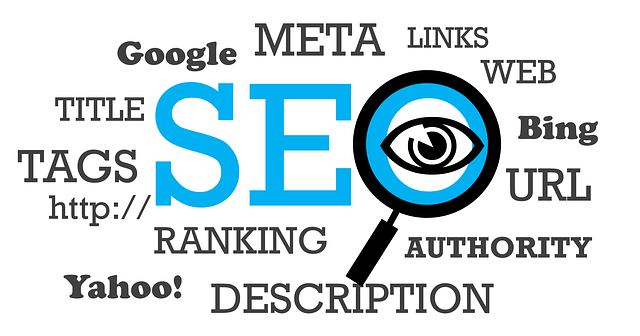A comprehensive competitor SEO analysis is essential for any digital marketing strategy, offering insights into industry best practices by examining rivals' online presence and techniques. This process involves keyword research to understand ranking terms, followed by audits of website structure, metadata, backlink profiles, and on-page elements. By learning from competitors' successes and failures, businesses can optimize their Technical SEO Training for improved site performance, search rankings, and organic traffic. Utilizing tools like SEMrush, Ahrefs, and Moz during this analysis helps identify content gaps, keyword opportunities, and weaknesses in strategies, ultimately fostering a tailored plan to outrank rivals.
In today’s digital landscape, understanding your competitors’ SEO strategies is vital for any business aiming to thrive online. This comprehensive guide offers a detailed journey through competitor SEO analysis, equipping you with essential tools and insights. From identifying key opponents to analyzing backlinks and keyword positioning, we cover every step. Learn how to leverage Search Engine Results Pages (SERP) data and undergo a technical SEO audit for optimal performance. Discover the secrets of top-performing businesses and equip yourself with the best practices in Technical SEO Training.
Understanding Competitor SEO Analysis: The Basics

Competitor SEO analysis is a crucial step in any digital marketing strategy. It involves examining your rivals’ online presence, focusing on their search engine optimization (SEO) techniques to gain insights into what works and what doesn’t in your industry. By understanding their strategies, you can identify gaps in your own Technical SEO training and make informed decisions to improve your site’s performance.
This process begins with keyword research, where you discover the terms competitors are ranking for and use them to optimize your content. It also includes an audit of their website structure, metadata, backlink profiles, and on-page elements to identify best practices and potential areas of improvement. With this knowledge, you can enhance your Technical SEO training, ensuring your site is optimized for search engines and attracting more organic traffic.
Identifying Key Competitors for Your Business

When conducting a competitor SEO analysis, identifying your business’s key rivals is the first step towards gaining a strategic edge in the digital marketplace. These competitors are often brands or websites that offer similar products or services within the same target market. As a professional, it’s crucial to look beyond immediate peers and consider both direct and indirect competitors. Direct rivals provide obvious competition, targeting the same customers with comparable offerings. Indirect competitors, on the other hand, may offer alternative solutions, influencing customer choices even if their core products differ slightly.
In today’s digital era, Technical SEO Training can equip you to uncover these hidden gems. Utilize advanced search engine optimization tools and analytics to track keyword rankings, backlink profiles, and website performance metrics. This data will help you understand your competitors’ online strategies, identify gaps in their approach, and ultimately, develop a tailored plan to outrank them.
Utilizing Search Engine Results Pages (SERPs) Insights

Search Engine Results Pages (SERP) Insights are a goldmine for any competitor SEO analysis. By leveraging this tool, businesses can gain valuable insights into how their website performs in search engine results compared to competitors. It provides data on click-through rates, average position, and other metrics that highlight areas of strength and weakness. For instance, understanding where your site ranks for specific keywords compared to others in your industry is crucial for optimizing technical SEO training aspects like meta tags, content optimization, and website structure.
SERP Insights also offer a glimpse into user behavior, such as the types of queries that lead users to competitor sites. This information can guide strategic decisions on keyword targeting, content strategy, and even site architecture adjustments. As Technical SEO Training becomes increasingly vital for online visibility, utilizing SERP Insights allows businesses to stay ahead by identifying opportunities to improve their search engine performance and outrank competitors.
Technical SEO Audit: A Comprehensive Guide

A technical SEO audit is an essential step for any business aiming to optimize its online presence and outrank competitors. This in-depth analysis involves evaluating the technical aspects of a website, ensuring it’s built with search engine-friendly structures and practices. By conducting a thorough audit, you can identify and fix issues that may hinder your site’s visibility and performance in search results.
The process includes scrutinizing key areas like website speed, mobile-friendliness, schema markup implementation, XML sitemaps, robot.txt files, and URL structure. A skilled SEO professional or a comprehensive Technical SEO Training program can guide you through this labyrinthine task. They will utilize specialized tools to uncover issues, such as broken links, duplicate content, indexing problems, and site navigation inefficiencies. Addressing these problems is crucial for improving user experience and search engine crawlers’ ability to understand and index your website effectively.
Analyzing Backlinks: Uncovering Hidden Strengths

Analyzing backlinks is a crucial part of any competitor SEO analysis, as it offers valuable insights into a website’s authority and visibility. By examining the links pointing to your competitors, you can uncover hidden strengths and weaknesses in their SEO strategy. This process involves using advanced tools to identify high-quality backlinks from reputable sources. Such an approach allows you to understand which websites in your industry are considered trustworthy by search engines.
In a Technical SEO Training context, learning how to analyze backlinks effectively equips you with the skills to assess the competitive landscape. You’ll discover that competitors might be leveraging outdated or low-quality links, which can cloud their overall performance. By contrast, identifying and capitalizing on high-value backlinks can significantly enhance your site’s search engine rankings. This knowledge empowers you to refine your own backlink profile, ensuring it aligns with best practices in the ever-evolving digital marketing landscape.
Keyword Research and Competitor Positioning

Keyword research is a fundamental step in any SEO strategy, especially when conducting a competitor analysis. It involves identifying the terms and phrases your target audience uses to search for products or services similar to yours. With Technical SEO Training, you learn effective methods to uncover these keywords by examining search engine results pages (SERPs), analyzing competitor content, and utilizing keyword research tools. Understanding what your competitors are targeting helps you position your website optimally to capture relevant traffic.
In this process, you assess your competitors’ online presence by checking their website rankings for specific keywords. This positioning analysis reveals the gaps and opportunities in the market. By studying which keywords drive organic traffic to their sites, you can tailor your content strategy to target those gaps, potentially gaining an edge over your rivals. It’s about understanding what works in your industry and leveraging that knowledge to enhance your own SEO efforts.
Content Strategy: Learning from Top Performers

Top performers in any industry often have a content strategy that sets them apart. A competitor SEO analysis can reveal these strategies, providing valuable insights for businesses aiming to enhance their online presence. By studying the type and frequency of content creation, you can identify gaps in your own approach. For instance, leaders might focus on long-form, in-depth guides, while others excel with quick, informative snippets—both have their merits.
Engaging in Technical SEO Training should include an examination of these content patterns. Learning from competitors’ successes and failures can guide the creation of a tailored content strategy. This involves understanding target audiences, optimizing content for search engines, and ensuring it aligns with industry trends. By emulating effective tactics and adapting them to your brand’s voice, you can elevate your online performance, making your website more appealing to both users and search algorithms.
Tools for Effective Competitor SEO Analysis

Performing a competitor SEO analysis is an essential part of any robust digital marketing strategy, offering valuable insights into how to improve your own search engine rankings. The first step in this process involves utilizing specialized tools designed for Technical SEO Training. These tools allow you to gain a comprehensive view of your competitors’ online presence by analyzing their website structure, content, backlinks, and more.
Popular options include SEO platforms like SEMrush, Ahrefs, and Moz, which provide detailed reports on keyword rankings, backlink profiles, and site performance metrics. With these insights, you can identify gaps in your own strategy, uncover new keyword opportunities, and understand the types of content that resonate with your target audience in a competitive landscape.
